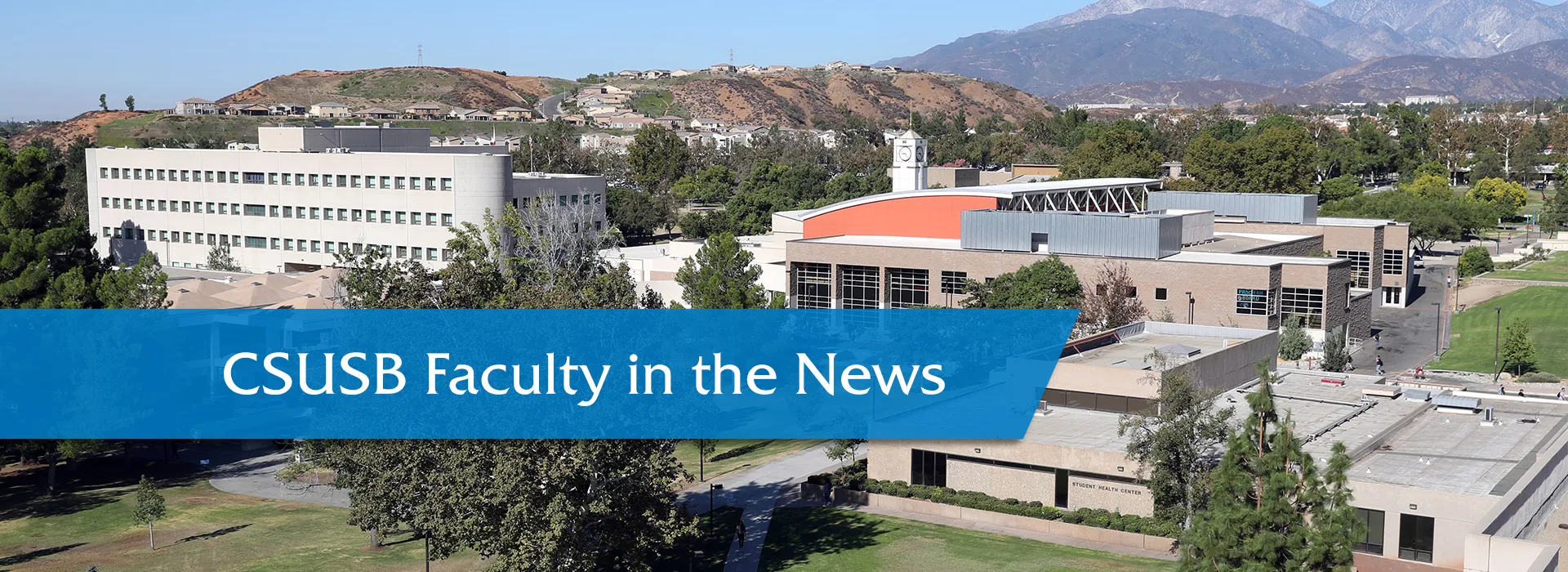NOTE: Faculty, if you are interviewed and quoted by news media, or if your work has been cited, and you have an online link to the article or video, please let us know. Contact us at news@csusb.edu.
Political discourse and mailing of pipe bombs topic of interview with CSUSB professorThe Christian Science MonitorOct. 25, 2018 In an article about the recent mailing of explosives to prominent Democrats, the newspaper included among the experts it interviewed Brian Levin, the director of the Center for the Study of Hate and Extremism at California State University, San Bernardino, for his analysis. “Over recent weeks we’ve seen an escalation of [hate-driven violence],” says Levin. “We saw the Proud Boys in New York and Patriot Prayer in Portland, including a cache of weapons on a rooftop,” he says, referring to far-right groups who have engaged in violent altercations with counter-protesters this month. “When we have leaders and a critical mass of people on social media who demonize folks specifically, it’s common sense that for some people they will regard that as where to direct their aggression, particularly when the language is so over the top.” Read the complete article at “What mail bombs say – and don’t say – about political discourse.”CSUSB professor discusses rise in incidents by fractured right-wing extremistsKCRW-FM Radio Los AngelesOct. 25, 2018 The public radio station host Madeline Brand interviewed Brian Levin, criminal justice professor and director of CSUSB’s Center for the Study of Hate and Extremism, about the rise of right-wing extremism in the country. “California seems to be a big part of the problem,” she said. Four members of the California-based Rise Above Movement, a white supremacist group that has been linked to violence in Charlottesville, Va., in August 2017 and elsewhere were recently arrested by federal authorities. Levin provided insight into the group, its origins and the crimes its members have been charged with. “They are an emblematic snap shot of a de-evolution that’s going on with this far-right, alt-right type of extremism,” he said. “Last year, these folks were riding the coattails and doing a bit of logroll … with the start of some of the ‘Unite the Right’ rallies.” While the attempt to form a larger group presence failed and fractured the effort, it left the extreme right with many smaller, fragmented groups, he said. “This is what you’re getting: You’re getting groups that are concentrating on violence, they’re about machismo, they’re about personal relationships,” he said. “And they not only operate where they live, some of them travel and they engage in violent street fights. The problem is, there has been an escalation in violence. And what we worry about is with this fragmentation … is that loners or small groups will engage in additional levels of escalated violence.” To listen to the interview, go to “The rise of white supremacist groups and their place in California.”
These news clips and others may be found at “In the Headlines” at inside.csusb.edu.
